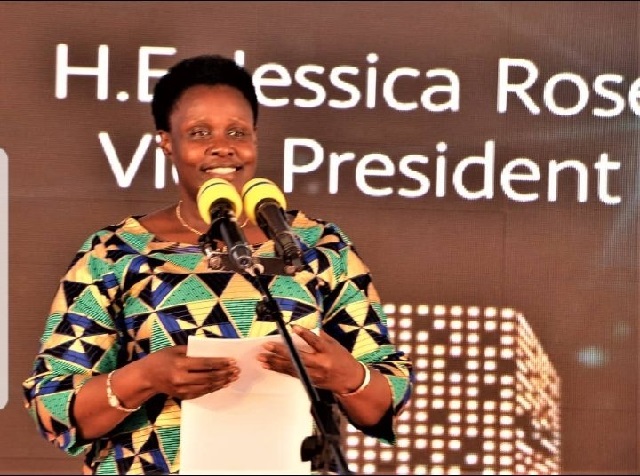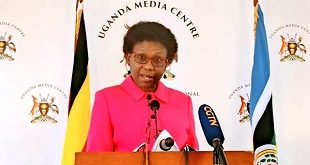
Uganda’s Diaspora community population is estimated at over two million, many of whom have inadvertently but successfully supported the growth of Uganda’s GDP through their remittances, estimated at over 1.4 billion dollars annually.
Kampala, Uganda | THE INDEPENDENT | Hundreds of Ugandans who live abroad are expected to converge in Kampala this week as the Ministry of Foreign Affairs (MoFA) hosts the Inaugural Uganda Diaspora Convention from the 18th – 19th of December 2024 at the Commonwealth Speke Resort, Munyonyo.
Among the discussions expected to be held during the Convention include how to facilitate easier and more user-friendly Consular services, for Ugandans abroad, Uganda’s 10-fold economic growth plan, financial and investment opportunities in Uganda, Land protection, Banking, the oil and gas industry, tourism and agro-industrialization.
The MoFA and its 40 Missions abroad have been engaging members of the Diaspora over the years. These engagements include participation in their calendar events such as the Uganda North American Association (UNAA), the Uganda-UK Diaspora Convention, the Convention of the Confederation of Ugandans in Southern Africa, the Uganda-Canadian Convention and many others. Arising out of these activities, the members of the Diaspora and the Ministry agreed to organize the Convention to address some of the pertinent issues that affect members of the Ugandan Community that live abroad.
The theme of this event will be “Mobilizing the Diaspora for Social Development” and Uganda Vice President Jessica Rose Epel Alupo is expected to be the chief guest.
According to reports by the UNDP, one of the event’s main sponsors, Uganda’s Diaspora community population is estimated at over two million, many of whom have inadvertently but successfully supported the growth of Uganda’s GDP through their remittances, estimated at over 1.4 billion dollars annually.
Beyond remittances, the Ugandan Diaspora have been involved in socio-economic transformation projects in the Health Sector, Agriculture, Education, ICT and Financial Services among others.
Speaking at the Ministry of Foreign Affairs, Permanent Secretary Vincent Bagiire Waiswa said that the Uganda Diaspora is an important resource that needs to be included in our National Development Plans. “The diaspora contributes to the growth of GDP, knowledge and skills transfer and the Government should provide avenues for harnessing their potential,” he said.
Amb. Johnnie Muthahi Muhindo, the Head of the Diaspora Services Department at the Ministry of Foreign Affairs said that the Department was established in 2007 to serve as a coordination point for various Diaspora needs, and to draft a National Diaspora Policy, offering a wide range of services to the large population of Ugandans in the Diaspora. “… a National Diaspora Policy will provide a clear framework for collaboration … guiding on how Uganda engages with its diaspora in areas like trade, investment, and technology.”
At the international level, Diaspora engagement has been explicitly included in the Global Compact for Safe, Orderly and Regular Migration in Objective 19: “To Create conditions for migrants and diasporas to fully contribute to sustainable development in all countries”, as well as in the 2030 Agenda for Sustainable Development which recognizes that migration is a powerful driver of sustainable development, for migrants and their communities. The MoFA has, in the past, partnered with the International Organization for Migration on several initiatives including the safe repatriation of Ugandans in distress.
UNDP resident representative Nwane Vwede-Obahor described the Convention as “an invaluable platform for engagement, exchange of ideas and establishment of partnerships that will benefit both the diaspora and Uganda.” Pledging the support of the United Nations Development Program in technical, strategic communication and operational support for the Convention, she emphasized that the Diaspora community plays a crucial role in the socio-economic development of nations, through their expertise, remittances, investments and advocacy. “They have become key drivers of economic growth, innovation and sustainable development,” she said.
Between 2019 and 2021, the Food and Agriculture Organization of the United Nations (FAO), in collaboration with the Ministry of Foreign Affairs, implemented the project “Strengthening Capacity to Harness Positive Effects of Migration,” whose objective was to boost income-generating opportunities in agribusiness by tapping into the entrepreneurial potential of diaspora, while also fostering diaspora-inclusive policy dialogue. Through the project, FAO and MoFA organized two Diaspora Agribusiness Conferences to increase the visibility of diaspora-led businesses and enhance multi-stakeholder dialogue and facilitated the establishment of the Uganda Diaspora in Agribusiness Network (UDAN).
*****
RELATED STORY
 The Independent Uganda: You get the Truth we Pay the Price
The Independent Uganda: You get the Truth we Pay the Price



